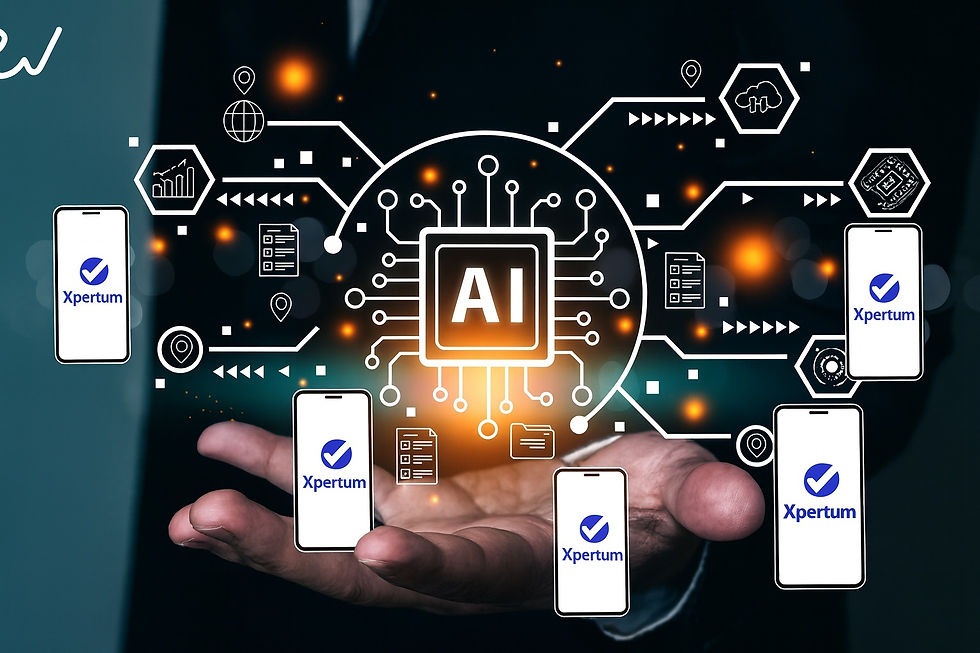Mobile Apps: The Key to Connecting with the Future
- DEAO

- Jul 23
- 3 min read

Mobile Apps: The Key to Connecting with the Future
In a hyperconnected world, mobile apps have become the primary channel of interaction between companies and their customers. From banking and retail to healthcare, education, and entertainment, apps not only simplify processes: they transform business models, improve the user experience, and open up new sources of revenue .
It's no longer about "having an app," but about creating a smart, useful mobile experience aligned with the expectations of a constantly evolving market .
🌐 Why are mobile apps essential today?
The numbers speak for themselves: more than 90% of the time people spend on their smartphones is spent using apps. This represents a unique opportunity for brands that want to be where their customers are: in their pockets, just a click away .
🔍 Advantages for customers
1. Ease of use The interfaces are specially optimized for mobile devices, resulting in intuitive, fast experiences adapted to different user profiles.
2. Immediate access from anywhere Apps allow you to interact with products or services at any time, without having to open a browser or repeatedly enter data.
3. Personalized Experience Apps can adapt to user behavior, displaying content, recommendations, or reminders based on their history and preferences.
4. Offline support Many applications allow access to key features or content even without an internet connection, which is ideal for low-connectivity or mobility contexts.
5. Access to device features Apps can use the phone's GPS, camera, microphone, biometric sensors, and other resources to offer rich experiences (such as code scanning, geolocation, augmented reality, etc.).
6. Increased speed and simplicity Unlike mobile websites, apps are optimized to offer quick responses, minimize loading times, and reduce unnecessary steps.
7. Frequent updates and continuous improvements Developers can release new versions with improvements in usability, security, performance, and new features, without requiring additional effort from the user.
8. Smart Notifications Push notifications keep users informed with relevant messages, personalized alerts, or real-time promotions.
🧩 Benefits for companies
1. Direct communication channel without intermediaries An app allows you to establish an ongoing relationship with the customer, without depending on social networks or other external platforms.
2. Customer loyalty Through rewards programs, exclusive offers, accumulative points, or early access, apps strengthen user retention and engagement with the brand.
3. Brand positioning Having an app in official stores improves the perception of professionalism, innovation, and reliability, raising the perceived value of the brand compared to the competition.
4. Superior mobile website experience Apps offer smoother transitions, greater stability, responsive interfaces, and optimized loading, resulting in a more satisfying experience.
5. Offline access for customers and collaborators Some functions may be available offline, which is useful for both consumers and workers in the field or remote areas.
6. Strategic Data Collection Apps allow us to understand how users interact, which features they use most, from which locations they access, and when they do so. This feeds into business intelligence models and strategic decisions.
7. Increased sales and conversions. Businesses with mobile apps often experience higher repeat purchases, thanks to the convenience, customization, and ability to cross-sell and upsell.
8. Competitive advantage and continuous innovation An app serves as a laboratory for implementing new features: AI chatbots, document scanning, augmented reality, biometric payments, among others.
🚀 What should a modern app be like?
Fast, intuitive and with user-centered design (UX/UI)
Able to operate in offline mode (offline-first)
Multiplatform (Android, iOS) and adaptable to different devices
Scalable, secure, and privacy-compliant
Integrated with internal systems, APIs, and technologies such as AI or blockchain
💡 Conclusion
Mobile apps are no longer just an added value. They're a strategic part of digital business , capable of improving processes, generating loyalty, and opening up new growth opportunities.
Investing in an app means investing in experience, differentiation, and scalability.
Mobile apps are no longer an option; they're an extension of the business model . Companies that understand their potential not only improve their customer relationships but also achieve operational efficiency, sustainable growth, and competitive differentiation .
Investing in an app isn't just a technological decision. It's a strategic decision to compete in the digital economy.










Comments